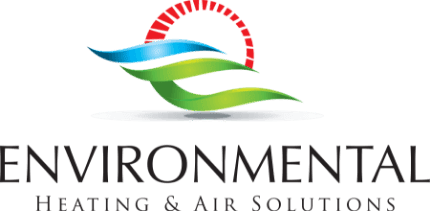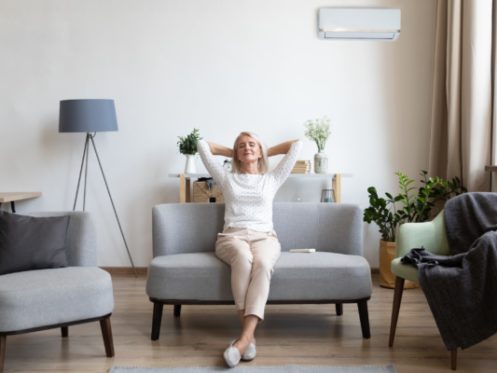Can Weather and Other Environmental Factors Affect Your Air Indoors?
The quality of your indoor air can be affected by several indoor factors. These causes range from your pets and furnishings to your choice of cooking fuel and the materials with which your home is constructed. However, it can also be affected by outdoor weather in a number of ways.
Cold Weather Means Closed Windows
During the colder times of the year, it is typical to close all of your windows and turn on the heat. This is an efficient way to maintain warmth in your home. It also prevents the natural airflow of a cross breeze from ventilating your home and removing indoor air quality contaminants. To counter this, consider running an air purification system during the winter.
Wet Weather Can Form Mold
The rainy season is often warm and wet in Roseville, CA. This is the perfect climate for forming mold. Not only can mold growth affect the quality of your home construction, but mold can also release spores into the air. Mold spores in the air can affect your respiratory health, especially if you are sensitive or allergic to these organisms.
Mold can be prevented in a few different ways. Keep your wood painted and/or sealed to reduce the chance of growth. Keep the humidity in your home at or below 60% with a dehumidifier. This keeps moisture in the indoor air below the level for mold to grow and reproduce. Finally, use an air filtration system that is able to pull these spores from your indoor air.
Dry Weather Can Be Uncomfortable
Overly dry air can affect your indoor home comfort. Dry air can lead to dry eyes, cracked lips, dry skin, and other discomforts. Dry air holds more dust and other airborne particulates than moist air. Dry air can also pull moisture from your wooden furniture and affect its strength and quality.
To add moisture to the air, consider adding a humidifier to your home. In the dry season, try to keep your humidity levels at 30% or more to maintain comfort. To address the dust and particulates in the drier air, consider an air filtration system.
Wildfire Smoke Can Affect Everyone
Often, the solution to dirty indoor air is to open windows or otherwise provide an outside ventilation source. However, when outdoor air quality is worse than the air quality inside your home, it can become uncomfortable and even dangerous to keep the windows open.
During the warm summer months, poor air quality from wildfire smoke can affect your home in a number of dangerous ways. This smoke can affect respiratory health for yourself, your family, and your pets. Keeping the windows closed on a hot summer day can increase the temperatures in your home. If you don’t have a reliable source of air conditioning, this heat can also become dangerous to people who are sensitive to high heat, like children and the elderly.
To deal with the air quality issues caused by wildfire smoke, be sure that your home is well-sealed and insulated. To promote air quality in your home once it is sealed, consider an air filtration and/or purification system.
To keep your home cool during hot, smoky days, keep your air conditioning system maintained. The soot in the air from wildfire smoke can clog your air intake filter, so check it more often than you typically do and prepare to switch it out more frequently. This will help keep your cooling system running more efficiently while keeping soot out of your air conditioning system and indoor air.
Extreme High or Cold Temperatures
High temperatures inside your home are caused by heat waves outside. During heat waves, high indoor temperatures can create a host of health problems ranging from heat stroke to dehydration. When these high temperatures are coupled with power outages that prevent you from using your air conditioning or cooling systems, this can make your indoor conditions even more dangerous.
To ensure that your indoor air stays cool under standard conditions during a heat wave, keep your cooling system maintained each year. The best time to do this is in the spring before you begin using it on a regular basis. Your HVAC professional will inspect, clean, and lubricate parts of this system. They will also advise you on your system’s likely remaining lifespan if it is older. This should also be done for a heater.
If your HVAC system goes out during a heat wave due to grid failures, some solutions may also impact your air quality in a negative way. While you want your home to be sealed as tightly as possible during hot weather, there are caveats. If you are running a portable air conditioner with a gas-powered generator during an outage, the generator must be outside in order to prevent the exhaust from discharging into your home. If you are running a space heater inside your home, make sure it is electric. Kerosene and propane heat sources inside a home can put carbon monoxide into your air. One of the most common dangers following a weather-caused power outage is asphyxiation in the home due to the use of indoor generators and space heaters.
Earthquakes and Landslides Can Mean Gas Problems
Gas lines that are buried in the earth can be affected if you have a weather event or earthquake that moves the soil around you. If these gas lines move, they may disconnect or crack. Depending on where this happens, it can create a buildup of gas inside your home. Natural gas and propane have a scent molecule added to them that should make it easy to smell the buildup of these gases in your home. If you smell this, leave your home immediately and call for help.
If you don’t have a good sense of smell, consider installing a propane or natural gas detector to your interior in addition to a carbon monoxide detector, which won’t detect unburned propane or natural gas. Carbon monoxide detectors are helpful in finding blocked or cracked exhaust vents created by shifting foundations. Again, if you hear this alarm, go outside immediately and call a professional for help.
Air Quality Inspections
If you are uncertain about the air quality in your home, consider getting an air quality inspection. A professional can assess the chemicals and particulates in the air and let you know the specific risks in your home. They can suggest changes to your home that you can make to help improve your air quality or purification systems to mitigate certain issues. They can also call attention to specific risks due to different seasonal or inclement weather conditions.
Speak With the Professionals to Learn More
Environmental Heating & Air Solutions is committed to helping you to maintain clean, breathable indoor air in your home. We are happy to help people in the Roseville, CA area with air quality services, including air sealing and ventilation services, carbon monoxide detection, and ductwork cleaning and inspections. We can even troubleshoot the source of your allergic symptoms in the home. Speak with our qualified experts to hear more.
If you are looking for heating and cooling repair, maintenance, inspection, and installation, we at Environmental Heating & Air Solutions service systems in any condition. We also employ a staff of certified plumbers who can help you with gas, electric, or hybrid water heaters and water leak detection. Finally, consider our additional services, including attic fan installation, blower door testing, home automation system design and installation, and home zoning services. Call us today to schedule an appointment, or keep our number on hand to help you with emergency services.

